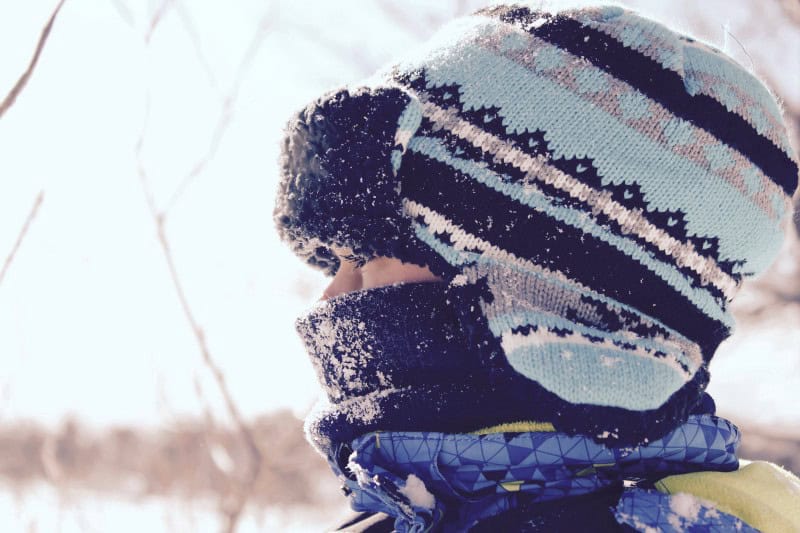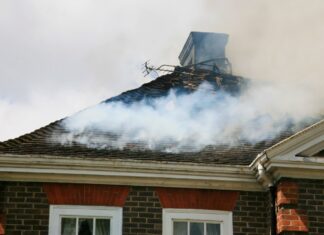
The temperature will be well below the freezing point, Freeholder Carmen Rodriguez says.

Freeholder Carmen Rodriguez, liaison to the Camden County Department of Health and Human Services, advises municipalities that Camden County will be under a Code Blue Advisory each night through the weekend.
The Health Officer issued the Code Blue advisory for Camden County effective from 6 p.m. tonight, March 22, through 6a.m. on March 23.
“A cold front is bringing frigid air back to our region, along with gusty winds. Overnight lows are expected to dip down to around 15 degrees. In these extreme weather conditions, we need everyone to be sheltered and out of the elements,” Rodriguez said. “If you must leave the house, please dress yourself and your children in warm clothing, hats and gloves. Also, please remember to check on elderly relatives and neighbors, and bring your pets indoors.”
When the Camden County Health Officer declares a Code Blue Weather Advisory, municipalities with homeless populations, situational homeless or transient populations are expected to activate their Code Blue response plan to accommodate their immediate needs.
“During these extreme weather conditions, we encourage everyone to check on elderly or handicapped relatives and neighbors that live alone,” Rodriguez said. “It is important that most vulnerable among us are not left without heat or electricity.”
With more than 75 percent of households in Camden County owning a cat or a dog Rodriguez wants to ensure that all pets are safe during these extreme temperatures as well.
Here are some cold weather tips from Freeholder Rodriguez to keep your pet safe:
• When the thermometer dips below 32 degrees, keep your pet indoors as much as possible. If your pet must stay outside, provide a warm shelter, raised a few inches off the ground, with the opening facing away from the wind and covered with a burlap or plastic flap. The shelter should be large enough for the animal to stand and turn around, but small enough to retain its body heat.
• If your pet is outdoors for extended periods when temperatures are below freezing (32 degrees), be alert for signs of distress from the cold. Just like in people, shivering is a sign that the body temperature is dropping. If you see your pet shivering, it is probably time to bring it inside. Remember, your pet’s body temperature is between 101–102 degrees and its body temperature lowers faster in cold weather.
• A very young, very old pet or a pet with a health problem is more vulnerable to cold.
• An animal with thick fur can tolerate cold longer than a small animal and one with short hair.
• Don’t leave your pet in an unheated vehicle for extended periods of time.
• Make sure your pet has clean unfrozen drinking water. Do not let your pet drink from puddles where there may be deadly antifreeze or other harmful chemicals.
• A pet can pick up rock salt, ice and other melting chemicals in their foot pads. This can harm your pet. Massaging petroleum jelly into paw pads before going outside helps to protect from salt and chemical agents. Moisturizing after a good toweling off helps to heal chapped paws. Wipe your pet’s feet with a damp cloth when it comes inside to protect its pads from damage. If this is a problem for your pet, there are boots available in all sizes. Your dog can get used to wearing the boots indoors for short periods of time. Not all dogs take to them.
• If there are outside cats in the neighborhood, rap on the hood of your vehicle and look under it before starting your engine and driving off. Cats sometimes curl up next to or under warm engines when they are left out in the cold.
• Antifreeze has an attractive scent and taste for animals and is extremely poisonous! Be especially vigilant about the ingestion of antifreeze. The first sign of antifreeze poisoning is a pet that appears drunk. Immediately get your pet to the vet if you suspect it has ingested antifreeze as it can be fatal within four to eight hours of ingestion.
The Camden County Health Department and the Office of Emergency Management have worked with each municipality to ensure they have the proper resources to respond to these severe weather situations as part of their individual Code Blue plans. Each municipality has identified its own location to accommodate those in their community seeking shelter from the severe weather.
Persons seeking shelter in a warming center should contact their local municipality. Additional resources are available by calling the Camden County Department of Health and Human Services at (800) 999–9045, or by visiting www.camdencounty.com.
The Office of Emergency Management is also monitoring conditions.
“As this weather pattern continues, please, if possible, stay indoors today to keep warm and stay out of the elements,” said Freeholder Jonathan Young. “If you must go out, please take precautions to keep you and your family safe from the extreme temperatures.”
Freeholder Young offers residents the following tips:
• Dress in layers and cover your exposed skin to avoid frostbite.
• It only takes 30 to 45 minutes for exposed skin to develop frostbite
• Mittens keep children’s hands warmer than gloves.
• Avoid wearing cotton, it holds in moisture and loses its insulating properties.
• Remember that even clear-looking sidewalks can be slippery.
• Keep dog walks brief, don’t leave animals outside and consider a dog coat.
• Please check on your neighbors, especially those that are elderly, disabled or live alone.
• Using your ceiling fan clockwise on low recirculates warm air through the room.
• Never use a stove, oven or a gas grill to heat your home.
• Use space heaters safely on a level, hard surface and keep anything flammable at least three feet away. Turn off space heaters before going to bed.
• Wood-burning fireplaces should have a glass or metal screen large enough to catch sparks or rolling logs. Never leave children alone in the room when a fire is lit. Keep all flammable items at least three feet away from the fireplace. Always make sure fireplace embers are out before leaving the room or going to bed.
• Keep your thermostat at the same temperature day and night. Your heating bill may be a little higher, but you could avoid the costly repair of pipes that freeze and burst.
• To prevent pipes from freezing, run water, even at a trickle. Open the kitchen and bathroom cabinet doors to allow warmer air to circulate around the plumbing, but be sure to move any harmful cleaners and household chemicals out of the reach of children. Keep garage doors closed if there are water lines in the garage.
• In order to conserve electricity, turn off lights and appliances that you do not need or are not using.
• At night, cover windows with drapes or blankets to minimize heat loss. During the day, open blinds to let sun warm the space.
In case of a power outage please report it directly to the appropriate utility provider list below:
• PSE&G: 1–800–436-PSEG (7734)
• PSEG website: http://pseg.com/home/customer_service/outage_info/index.jsp
• Atlantic City Electric: 1–800–833–7476
• Atlantic City Electric website: http://www.atlanticcityelectric.com/home/
• South Jersey Gas: 1–800–582–7060
• South Jersey Gas website: http://southjerseygas.com/









